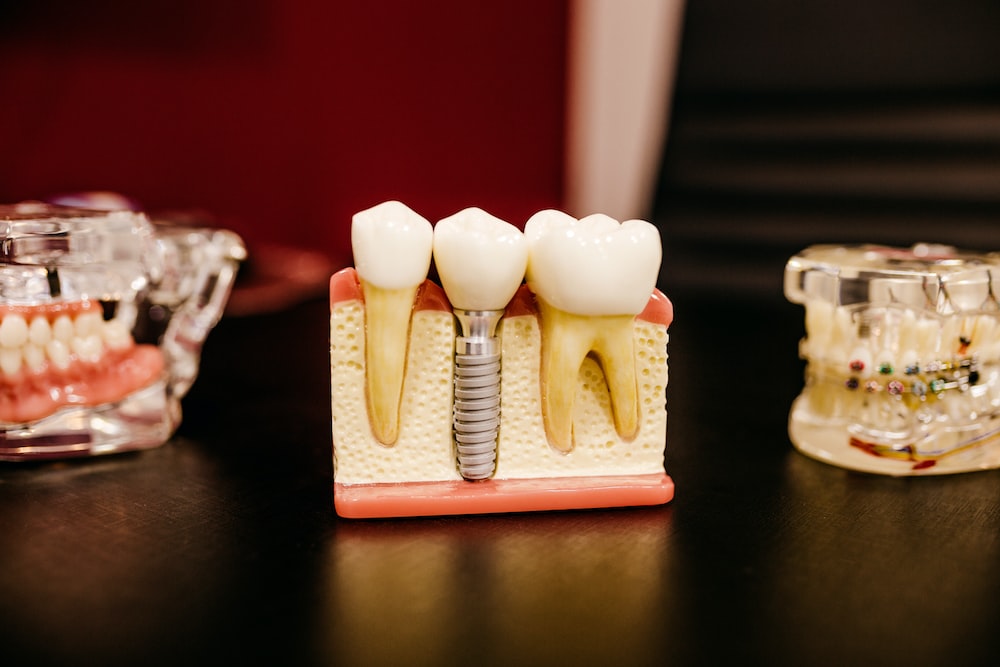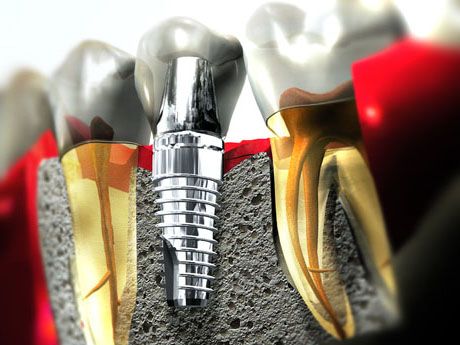Dental Implants
Dental Implants
Dental implants are artificial tooth roots made of Nickel-Titanium or other biocompatible materials that are surgically placed into the jawbone to support prosthetic teeth.
They are a popular and effective option for people who have lost one or more teeth due to injury, decay, or disease.
In this article, we will explore dental implants in more detail, including their benefits, the implant procedure, aftercare, and potential risks.
Implant Procedure:
The dental implant procedure typically involves few steps, including consultation, implant placement, and restoration.
During the initial consultation, the dentist will examine the patient’s mouth, take X-rays or scans, and determine if the patient is a suitable candidate for dental implants.
Patients who have sufficient jawbone density and good oral health are typically good candidates for implants.
Next, the implant placement procedure will be scheduled.
During this procedure, the dentist will use a local anesthetic to numb the area and then make an incision in the gum tissue to access the jawbone. A small drilling is done into the bone, and then implant is placed into the bone.
The gum tissue is then sutured and closed, and the patient will be recalled after 3 months, while the implant integrates with the jawbone.
The integration process, known as osseointegration, can take 3 months to complete. During this time, the implant fuses with the surrounding bone tissue and becomes a permanent part of the jawbone. Once osseointegration is complete, the patient will return to the dentist to have the final restoration placed. This may include a crown, bridge, or denture, depending on the number of teeth being replaced.
Latest Equipments we have:
Sinus Lift Kit



Benefits of Dental Implants:
- Dental implants offer several benefits compared to other tooth replacement options.
- Firstly, they provide a permanent and stable solution, unlike removable dentures and bridges.
- Additionally, dental implants look and feel like natural teeth, making them a more aesthetically pleasing option.
- They also function like natural teeth, allowing patients to eat, speak, and smile with confidence.
- Furthermore, dental implants can help preserve the jawbone and prevent further tooth loss, which can occur when missing teeth are left untreated.
Aftercare:
Proper post treatment care is essential for the success of dental implants. Patients should maintain good oral hygiene by brushing and flossing regularly and using mouthwash as recommended by their dentist.
They should also attend regular dental check-ups and cleanings to ensure the implant and surrounding teeth and gums are healthy.
Patients may experience minimal discomfort, after the implant procedure for first two days.
Over-the-counter pain medication can help manage discomfort, and patients should avoid smoking, drinking alcohol, and eating hard or sticky foods until the implant site has fully healed.
It is also important to follow any additional post treatment instructions provided by the dentist.
Some tests before dental implant procedure
Before a dental implant procedure, it is important to undergo certain tests to ensure that the patient is a suitable candidate. These tests may include X-rays, CT scans, and bone density tests. X-rays and CT scans help to determine the condition of the jawbone and surrounding teeth, while a bone density test can determine if the patient has enough bone to support the implant. At Laxmi Dental Care, we conduct thorough tests to ensure a successful and safe dental implant procedure for our patients.
What is osseointegration?
Osseointegration is a biological process that occurs when a dental implant is placed into the jawbone. It is the process by which the implant fuses with the surrounding bone, creating a strong and stable foundation for the replacement tooth or teeth. During the osseointegration process, the bone tissue grows and integrates with the surface of the implant, ultimately providing a durable and long-lasting anchor for the prosthetic tooth. At Laxmi Dental Care, we prioritize the success of osseointegration in every dental implant procedure we perform.
Early implant placement
Early implant placement is a technique where dental implants are placed immediately after a tooth extraction or shortly thereafter, rather than waiting for the extraction site to heal. This technique offers several benefits, including reducing the need for multiple surgeries, preserving bone density, and improving the overall cosmetic result. At Laxmi Dental Care, we utilize the latest techniques and technology to provide our patients with safe and successful early implant placement procedures. Our experienced dental team will work with you to determine if early implant placement is the right choice for your specific needs.
Late implant placement
Late implant placement refers to the placement of dental implants several months or even years after a tooth extraction or loss. This may be due to various factors such as healing time, bone density, and overall health considerations. While late implant placement may require additional preparation, such as bone grafting or sinus lifting, it can still provide successful results for patients seeking to replace missing teeth. At Laxmi Dental Care, we offer personalized treatment plans for each patient, taking into account their specific needs and circumstances, to ensure the best possible outcome for late implant placement.
Frequently Asked Questions
Our clinic offers world class technology and highly trained dentists who have extensive experience in dental implant procedures. We prioritize patient comfort and satisfaction, ensuring that every patient receives personalized and compassionate care. We do have all latest equipments inhouse i.e OPG, Piezotome Ultrasurgery and Physiodispenser etc.
We understand that dental procedures can be stressful for some patients, and we prioritize patient comfort throughout the implant procedure.
We offer a range of sedation options, including nitrous oxide, oral sedation, and IV sedation, to help patients feel more relaxed and at ease during their procedure.
Our dental professionals also take the time to explain each step of the procedure and answer any questions patients may have, helping them feel more informed and confident about their treatment.
The treatment timeline varies depending on the patient’s individual case. After the implant is placed, it takes three months for the implant to fuse with the jawbone in a process called osseointegration. After that, the abutment and crown can be fixed to the implant.
Dental implants offer many benefits, including improved appearance, improved speech, improved comfort, chewing and function, improved oral health, and improved self-esteem.
Our clinic is designed to provide a welcoming and relaxing environment for our patients.
Our waiting room features comfortable seating, soft lighting, and calming music.
Treatment rooms are spacious and well-lit, with large windows that provide natural light and views of greenery.
We believe that a comfortable and relaxing environment helps patients feel more at ease during their visits and can contribute to a positive dental experience.
Our clinic stands out for its world class modern facilities, including advanced diagnostic and treatment equipment, and a welcoming, relaxing ambiance that helps patients feel comfortable and at ease. Our team of expert dental professionals is dedicated to providing high-quality care and exceeding our patients’ expectations.
A dental implant is a small, screw-shaped post made of biocompatible materials, usually Nickel-Titanium, that is surgically placed into the jawbone to replace missing teeth roots.
The implant surgery is typically performed under local anesthesia, so the patient should not feel any pain during the procedure. After the anesthesia wears off, there may be small discomfort for first three days, which can be managed with over-the-counter pain relievers.
We prioritize patient satisfaction and work hard to ensure that every patient receives the highest quality care.
We take the time to listen to our patient’s concerns, provide clear and thorough explanations of treatment options, and work with patients to develop individualized treatment plans that meet their needs and goals.

